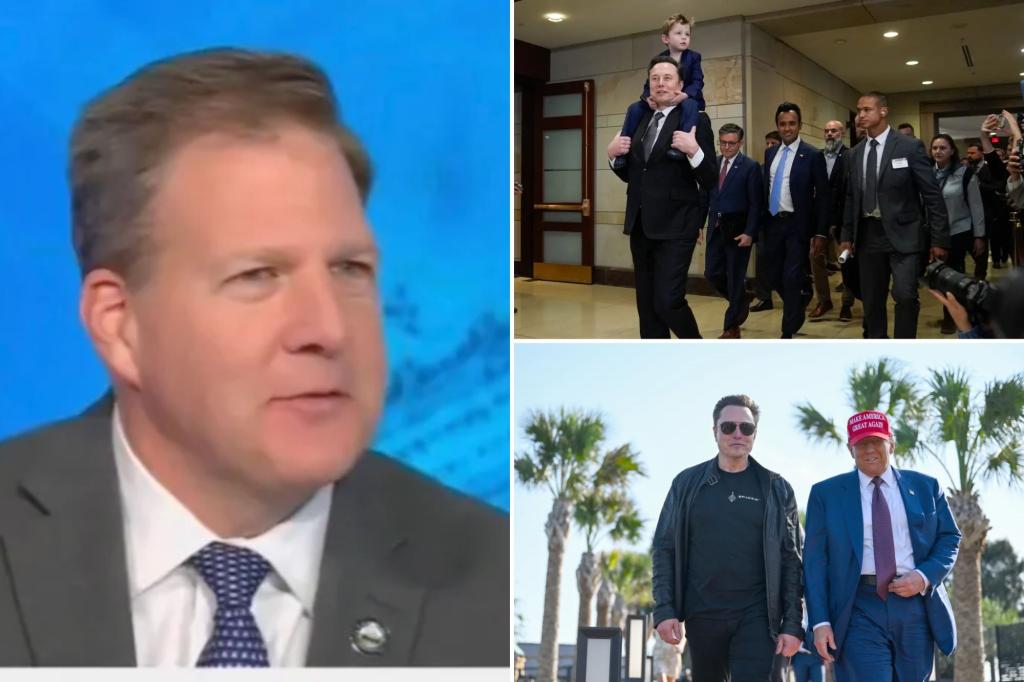Chris Sununu, the outgoing Republican Governor of New Hampshire, expressed strong support for Elon Musk’s involvement in addressing the nation’s fiscal challenges, dismissing concerns about potential conflicts of interest stemming from Musk’s extensive government contracts. Sununu argued that Musk’s immense wealth, estimated at $450 billion, insulates him from financial influences, suggesting that his motivation for engaging in policy discussions stems from a genuine desire to improve the country’s financial health rather than personal gain. He drew parallels between himself and Musk, highlighting their shared engineering background and commitment to fiscal conservatism, further solidifying his confidence in Musk’s potential contributions to government efficiency.
Sununu’s optimism extended to Musk’s initiative, the Department of Government Efficiency (DOGE), which, despite its official-sounding name, is not a formal government entity. Sununu believes that DOGE, under Musk’s leadership, can identify and eliminate wasteful spending within the government. This aligns with Sununu’s own fiscal conservative principles and his concerns about the escalating national debt, which he projects will reach a staggering $1.8 trillion in interest payments over the next decade due to rising interest rates. He emphasized that states like New Hampshire have already implemented efficiency measures that the federal government could learn from.
Despite his previous criticism of former President Trump, particularly regarding government spending during his first term, Sununu expressed cautious optimism about Trump’s second term. He attributed this shift in perspective to two key factors. Firstly, he believes Trump has gained a better understanding of the intricacies of working with Congress, having learned from the experiences of his first term, which included the Republican Party’s losses in the 2018 midterm elections. Secondly, Sununu noted that Trump has assembled a more experienced and professional team within the White House, supplemented by external advisors like Musk. This combination, he hopes, will lead to more effective governance and fiscal responsibility.
Adding another layer to this complex political landscape, Sununu acknowledged the influence of fiscal hawks within the Republican Party, who are expected to exert significant pressure on budgetary matters during Trump’s second term. The House Republicans, holding a slimmer majority than during Trump’s first term, are likely to face internal divisions and intense negotiations over spending priorities. Musk himself has already demonstrated his willingness to intervene in congressional budgetary processes, recently contributing to the rejection of a bipartisan government funding bill. This incident highlights the potential for external figures like Musk to play a significant role in shaping fiscal policy.
Sununu’s endorsement of Nikki Haley during the Republican primaries and his outspoken criticism of Trump underscores the evolving dynamics within the Republican Party. His decision not to seek re-election as governor, despite the absence of term limits, further indicates a potential shift in his political trajectory. His future plans involve transitioning to the private sector after the inauguration of Governor-elect Kelly Ayotte, another Republican. This move away from elected office suggests a desire to pursue different avenues of influence and engagement within the political and business spheres.
In essence, Sununu’s statements reflect a complex intersection of political and economic forces. He champions fiscal conservatism while embracing the potential contributions of a controversial figure like Elon Musk. His cautious optimism about the Trump administration’s second term, despite past criticisms, reveals a pragmatic approach to navigating the political landscape. His departure from the governorship signals a new chapter in his career, leaving open the question of his future role in shaping policy and public discourse. The interplay of these factors, particularly with the added influence of figures like Musk, promises a dynamic and potentially unpredictable political landscape in the coming years.








